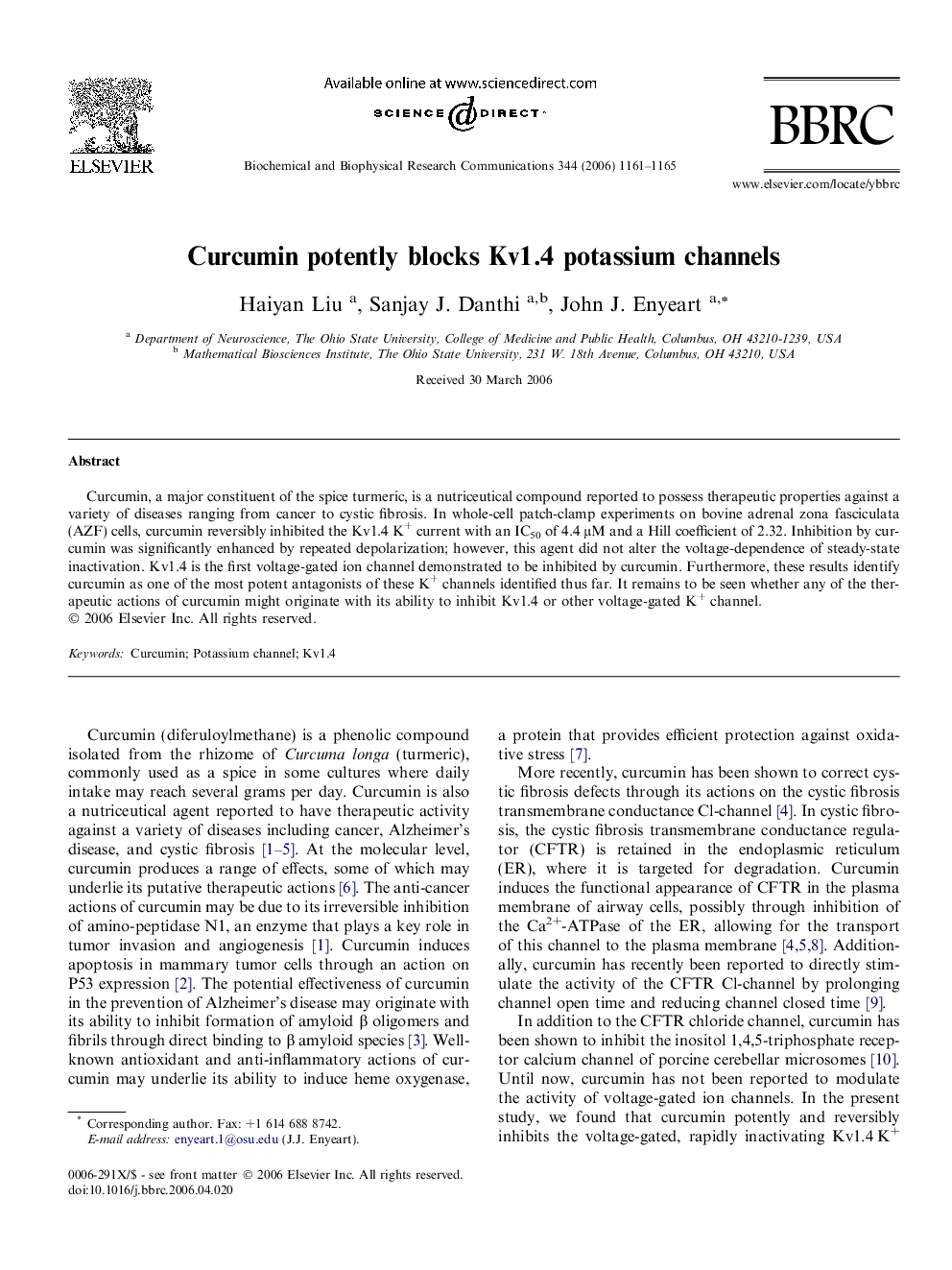| Article ID | Journal | Published Year | Pages | File Type |
|---|---|---|---|---|
| 1940582 | Biochemical and Biophysical Research Communications | 2006 | 5 Pages |
Curcumin, a major constituent of the spice turmeric, is a nutriceutical compound reported to possess therapeutic properties against a variety of diseases ranging from cancer to cystic fibrosis. In whole-cell patch-clamp experiments on bovine adrenal zona fasciculata (AZF) cells, curcumin reversibly inhibited the Kv1.4 K+ current with an IC50 of 4.4 μM and a Hill coefficient of 2.32. Inhibition by curcumin was significantly enhanced by repeated depolarization; however, this agent did not alter the voltage-dependence of steady-state inactivation. Kv1.4 is the first voltage-gated ion channel demonstrated to be inhibited by curcumin. Furthermore, these results identify curcumin as one of the most potent antagonists of these K+ channels identified thus far. It remains to be seen whether any of the therapeutic actions of curcumin might originate with its ability to inhibit Kv1.4 or other voltage-gated K+ channel.
